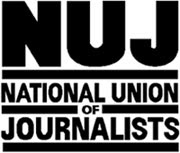We began our campaign for fair pay with a five-day strike because chapel members feel fed up with below-inflation pay rises eroding our standard of living while our employer - Newsquest - continues to make massive profits.
Living is costly
While the standard measure of inflation (RPI) currently stands at four per cent year-on-year, house prices have gone up by 6.6 per cent, food by 7.2 per cent and energy costs by 15 per cent, not to mention the spiralling cost of fuel. These increases, coupled with below-inflation pay deals year after year, are making life costlier than ever.
In our last round of pay negotiations more than two years ago, we agreed a deal based on RPIX (a rate of inflation that doesn't include mortgages) plus 0.25 per cent. Using the same calculation for this year - just to stand still on our deal last time around - would currently work out at a 4.25 per cent rise.
Yet we have been offered just a three per cent pay rise - in real terms a 1.2 per cent pay cut.
Four other Newsquest centres have been offered a 3.5 per cent deal - Glasgow, North Essex, South Essex and South London. Our management has said an extra 0.5 per cent would be available as "merit money" for the editor to shower on whoever he pleases. But it has become clear both here and from colleagues in Bradford that Newsquest bosses are not in any way committed to spending this cash.
Billion dollar racket
Newsquest's management is pleading poverty but its profits in York alone were £4.3 million last year. Gannett, the American parent company that owns Newsquest - including The Press and the Gazette & Herald - made $1 billion in 2007.
Newsquest's national chief executive and chairman Paul Davidson received more than £1.1 million in salaries, bonuses and benefits last year and lives in the exclusive Virginia Water estate in Surrey - the wealthiest village in England.
Yet trainee reporters on The Press - graduates often with a mountain of debt - are forced to struggle by on only £13,500. The most any non-management journalist at The Press or the Gazette & Herald could ever hope to earn is £22,500 - even if they work for the company for decades they will never break through this glass ceiling.
And unless we put a stop to below-inflation pay deals year after year, journalists' standard of living will continue to worsen.
Standing up for journalism
How to support us
- Send messages of support. Email nujyork@gmail.com
- Sign our online petition at www.petitiononline.com/nujyork
- Urge your MP to sign up to Early Day Motion 1639. Log on to www.writetothem.com
Stand up with us

Quality local journalism is under threat in York
About us

- NUJ York
- North Yorkshire, United Kingdom
- We are the National Union of Journalists chapel at Newsquest (York) Ltd, publishers of The Press and the Gazette & Herald newspapers.
Labels
- Ballot (1)
- Campaign events (7)
- Day 1 (9)
- Day 2 (4)
- Day 3 (3)
- Day 4 (3)
- Day 5 (4)
- Donations (17)
- Facts and figures (3)
- History (3)
- Job cuts (6)
- Mandatory meetings (8)
- Media coverage (11)
- Messages of support (23)
- Pay settlement (3)
- Pictures (19)
- Return to work (2)
- Strike support (26)
- Strike vote (1)
- Videos (5)
Links
© All words copyright NUJ Newsquest York Chapel. Photographs copyright the authors. All rights reserved. Email nujyork@gmail.com for more information.
